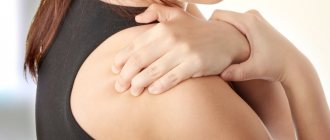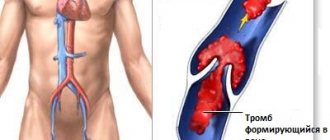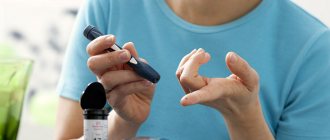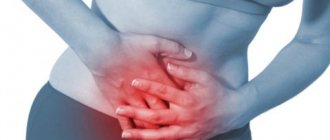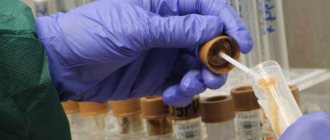Pain in the bladder area is an unpleasant symptom that may indicate dangerous urological diseases.
Due to the peculiarities of anatomy, men encounter this problem less often than the fair sex. However, if even slight pain appears in the bladder area in men, you should make an appointment with a urologist.
You can receive qualified medical care in St. Petersburg by contacting the Diana multidisciplinary clinic.
Bladder pain in men: associated symptoms
The content of the article
Feeling pain in the lower abdomen, patients often cannot independently determine which organ is hurting. If the pain is localized specifically in the bladder, men experience a number of associated symptoms:
- localization of pain between the scrotum and anus (in the perineum);
- frequent or constant urge to urinate (sometimes false);
- pain, itching, burning during urination;
- night sleep disturbances;
- discomfort during sexual intercourse;
- impurities of blood and pus in the urine.
Inflammatory diseases of the bladder may be accompanied by increased body temperature, general weakness, and fever.
Sleep disturbance
Itching in the groin
Urge to urinate
Prevention of urethritis
Available prevention of urethritis and its complications:
- Elimination of excessive physical stress and stressful situations;
- Regular visits to the urologist for preventive examination;
- Compliance with drinking regime;
- Refusal of unprotected and casual sexual contacts;
- Regular emptying of the bladder;
- Quitting alcohol consumption;
- Timely treatment of emerging diseases, genital and fungal infections;
- Compliance with hygiene rules, using predominantly cotton underwear, using only personal hygiene products, linen, and towels.
To prevent urethritis from becoming chronic and causing complications, it is necessary to promptly treat its manifestations under the guidance of a urologist. Adequate diagnosis, careful adherence to the recommendations of the attending physician, and refusal of self-medication will help restore and restore the health of the genitourinary system.
Causes of bladder pain in men
Various diseases can cause discomfort in this area. Most often, this symptom is associated with urological pathologies.
Urologists name many reasons for bladder pain in men.
Inflammatory diseases
Cystitis is an inflammation of organ tissue, which can occur in acute or chronic form. In men, this pathology is more often caused by activation of the opportunistic flora of the body. Possible pathogens include Escherichia coli, Klebsiella, and Enterobacteriaceae. The inflammatory process develops against the background of the following factors:
- weakened immunity;
- taking immunosuppressants;
- long-term treatment with antibiotics;
- chemotherapy;
- irradiation of the body;
- malnutrition (emaciation);
- frequent change of sexual partners (infection with STIs);
- failure to comply with personal hygiene rules;
- recent urological manipulations (catheterization), etc.
Change of sexual partners
Taking medications
Pain from cystitis is localized in the lower abdomen, but often also affects the rectum and lumbar region. Sometimes the patient's body temperature rises sharply. Blood or pus may appear in the urine. Interstitial cystitis or Hunner's ulcer causes particularly severe pain. With this pathology, fibrosis of all layers of the organ wall develops against the background of the inflammatory process. The reasons for the development of this pathology have not been fully studied, but the leading role is given to autoimmune processes.
Treatment of cystitis includes taking antibiotics, anti-inflammatory drugs, and sometimes painkillers. For the entire period of treatment of the disease, it is recommended to abstain from sexual activity and follow a diet.
Complications
Urethritis is a serious disease; do not hesitate to consult a doctor with this problem, since untimely or incorrect treatment can lead to the development of serious complications.
The infection may spread to other organs; patients may develop cystitis, pyelonephritis, and the inflammatory process may affect the testicles and their appendages. The most severe complication of urethritis in men is prostatitis, which can lead to incurable infertility and sexual dysfunction.
Congenital and acquired anomalies of the bladder
In some cases, pain and discomfort are associated with changes in the anatomical structure of the organ. With such pathologies, mild pelvic pain can be permanent. Congenital and acquired anomalies disrupt urination processes, increase the risk of infection, and provoke congestion and inflammatory processes.
Possible abnormalities that cause aching pain in the bladder in men include:
- Diverticula.
This is a hernial protrusion of the mucous membrane of an organ. Pain occurs as a result of changes in muscle tone of the walls, the addition of infectious processes, and the development of vesicoureteral reflux. In most cases, surgical treatment is required. - Exstrophy.
This is a fusion of the walls of the bladder with the anterior abdominal wall. The anomaly disrupts the functions of the organ, which leads to pain and discomfort. To eliminate symptoms, surgery is performed to restore the normal structure of the urinary system. - Megacystis syndrome.
With this pathology, the organ is enlarged and has abnormally thin walls. Patients experience pain associated with frequent infectious and inflammatory processes and stagnation of urine. To eliminate symptoms, ureteral reimplantation, antibiotic therapy, and catheterization are performed. - Neurogenic bladder.
This is a dysfunction of an organ due to neurological disorders or diseases of the central nervous system. Soreness occurs as a result of recurrent urinary tract infections, spasmodic activity of the walls, or urinary retention.
Most anomalies in this group require surgical intervention to eliminate unpleasant symptoms.
You can make an appointment with a doctor by phone
8-(4822)-33-00-33
or using the online registration system on the website
Make an appointment with a doctor
Possible diseases:
- urethritis - inflammation of the urethra;
- urolithiasis disease;
- trichomoniasis;
- vesiculitis - inflammation of the seminal vesicles;
- chlamydia;
- ureaplasmosis;
- orchitis - inflammation of the testicle;
- mycoplasmosis;
- prostatitis;
- cystitis - inflammation of the bladder;
- genital herpes;
- candidiasis;
- balanoposthitis - inflammation of the foreskin and glans penis;
- BPH;
- prostate cancer;
- epididymitis - inflammation of the epididymis;
- phimosis is a narrowing of the foreskin.
Most often, the cause of discomfort is prostatitis, urethritis and sexually transmitted diseases. To confirm the diagnosis, a comprehensive examination is carried out.
Tumors
Bladder tumors may not produce any symptoms for a long time. Pain is usually caused by fairly large tumors. At the same time, the danger of bladder tumors is that even a benign tumor can lead to serious complications in the form of urinary retention.
All organ tumors can be divided into the following groups:
- Exophytic papillomas.
These are small tumors that attach to the mucous membrane with a thin stalk. The tumor is considered benign, but in 3-5% of cases it transforms into papillary transitional cell carcinoma. - Inverted papilloma.
This is a benign nodular neoplasm that does not pose a threat to the patient’s life. - Transitional cell carcinoma.
A neoplasm that is life-threatening to the patient and affects an organ. As the tumor grows, cancer cells can spread beyond the bladder, affecting other organs and tissues.
Tumors are most often recommended to be removed due to the risk of blockage of ducts and urinary retention.
Surgical intervention
Diagnostics
If a man feels a burning sensation when urinating, it is recommended to visit a therapist for the first consultation. He will listen to complaints, collect anamnesis and prescribe an examination. If necessary, the doctor will refer you to other specialists for additional consultation.
Examination scheme:
- general urine analysis;
- smear for sexually transmitted infections;
- Ultrasound of the kidneys and bladder;
- digital examination of the prostate gland;
- prostate secretion analysis;
- uroflowmetry;
- uroscopy.
Based on the results of the examination, a treatment plan is drawn up and the most effective therapy is selected.
Read also: Urolithiasis in men
Diagnosis of pain in the bladder area in men
If a patient presents with pain, the urologist needs to make an accurate diagnosis. For this purpose, the following list of studies is prescribed:
- Interview and examination of the patient
. The urologist must carefully examine the patient’s medical history, clarify symptoms and complaints. It is also necessary to examine the external genitalia. - Keeping a urine diary.
For 2-5 days, the patient should write down everything about his urination. The diary indicates the time, volume of urine and sensations during the act of bowel movement (pain, burning, stinging). The patient should also record data on all liquids drunk per day. - Analysis of urine.
A general urine test is carried out to identify the inflammatory process and a general assessment of the functioning of the urinary system. It is also necessary to carry out bacteriological culture of urine on a nutrient medium. This allows you to determine the growth of colonies of pathogenic microorganisms and create an antibiogram. - Test with potassium solution .
During this study, clean water is injected into the bladder cavity through a catheter, and after some time a potassium solution is injected. Next, the patient must fill out a special test protocol. It gives a subjective assessment of pain from 1 to 5 points. A healthy person does not experience pain when both fluids are administered. If the potassium solution causes severe pain, the patient is diagnosed with interstitial cystitis. - Cystoscopy.
This is an informative endoscopic examination of the bladder, which is carried out with a special device - a cystoscope. This endoscope looks like a thin tube that is inserted into the body through the urethra. Since the urethral canal in men is very thin and long, the procedure must be performed under anesthesia. During cystoscopy, the urologist can examine the inside of the bladder in a greatly enlarged format. The study reveals most of the possible pathologies of the organ. - Biopsy.
This is the collection of a small area of tissue for microscopic analysis. Tissue is taken for biopsy during cystoscopy. This study allows you to confirm or exclude cancer.
Only after making an accurate diagnosis can treatment begin.
Causes of pain when urinating in women
Some diseases characteristic of women cause pain when urinating. These include:
- Inflammation in the genital organs - vaginitis, colpitis, cervicitis. In addition to abnormal vaginal discharge, itching, burning of the mucous membrane, dysuric phenomena are also observed - pain, cramps when urinating, frequent urges. Any of these symptoms require a visit to the gynecologist. At the SM-Clinic in Moscow, experienced gynecologists will prescribe optimal treatment and advise on all issues of contraception, including individual selection of contraceptives.
- Candidiasis – observed with the intense growth of fungi of the genus Candida. The main symptom is discharge and itching in the vagina and external genitalia, but is often accompanied by pain and cramping when urinating. Men also get thrush, but most often it is asymptomatic.
Treatment
If a man has pain in the bladder area, the treatment strategy depends on the cause of the pain. The age and general condition of the patient also matters. Most often in urology, the following methods of treating pathologies are used:
- Drug therapy.
Doctors prescribe nonsteroidal anti-inflammatory drugs, antibiotics, and painkillers. Some pathologies require antihistamine therapy. - Physiotherapy.
Electrical stimulation of the pelvic floor muscles and neurostimulation are especially effective. Physiotherapeutic procedures increase blood circulation in the organ, strengthen muscles, and relieve pain. - Hydrodistension (hydrobugation).
If the pain is associated with loss of elasticity of the walls, they are stretched by filling the organ cavity with water. The procedure is performed under anesthesia. - Instillation.
This is a treatment method in which drug solutions are injected directly into the bladder through the urethra. - Surgical intervention.
If partial excision of tissue or complete removal of an organ is necessary, surgery is performed. In addition to standard surgical instruments, electrocoagulation or laser coagulation can be used to remove affected areas.
A timely visit to a medical urologist will allow you to get rid of the pain syndrome while maintaining all the functions of the organ.
ONLINE REGISTRATION at the DIANA clinic
You can sign up by calling the toll-free phone number 8-800-707-15-60 or filling out the contact form. In this case, we will contact you ourselves.
If you find an error, please select a piece of text and press Ctrl+Enter
When should you contact a urologist?
It is better not to delay contacting a doctor. If you experience a burning sensation, even a mild one, you should immediately go to an appointment with a urologist, venereologist or andrologist. Sometimes a consultation with an oncologist or nephrologist is required. At the first appointment, the doctor conducts an examination and also prescribes an ultrasound examination of the kidney, bladder, and prostate.
Help in making a diagnosis is provided by such diagnostic measures as taking a smear for microscopy of discharge from the urethra, collecting urine and blood for a general analysis. In some cases, spinal puncture and magnetic resonance imaging are prescribed.
Examination and treatment tactics
To get rid of the burning sensation, you need to identify the underlying disease and the causative agent. To do this, you will need the following research:
- general urine analysis;
- three-glass sample;
- examination of smears from the urethra;
- Ultrasound of the bladder, kidneys and prostate;
- general blood analysis;
- PCR research;
- analysis according to Nechiporenko and Zimnitsky;
- endoscopic examination.
Treatment is determined by the underlying disease. If an infection is detected, systemic antimicrobial drugs are prescribed. For candidal urethritis, antifungal medications are indicated. In case of allergies, contact with the irritant must be avoided. When washing your body, you must use high-quality hygiene products.
You need to give up cheap washing powders and synthetic underwear. For bacterial urethritis and prostatitis, antibiotics are prescribed. In case of chronic inflammation of the prostate gland, the following is required:
- massage (outside the acute stage and in the absence of complications);
- physiotherapy;
- painkillers;
- antispasmodics;
- beta blockers.
In severe cases, surgery is performed. If chlamydia is detected, tetracyclines, fluoroquinolones or macrolides are prescribed. It is worth giving up sexual relations for a while. If the burning sensation is caused by trichomoniasis, then the drugs of choice are drugs based on metronidazole, tinidazole and ornidazole. If a man has urolithiasis, stone crushing is indicated. If urates are detected, medication (Blemaren) may be used. Thus, burning in the urethra is a sign of a variety of diseases. If treated incorrectly, serious complications can develop.
What to do if it itches?
Even mild itching in the urethral area can be a symptom of various health problems. If it occurs, you should not treat it at home using folk remedies or over-the-counter medications. Such an approach to one’s own health can lead to serious complications - the spread of the inflammatory process, infertility and impotence. If itching is accompanied by difficulty urinating, it is most likely associated with an inflammatory process. If such a symptom is combined with discharge from the urethra, it may be an infection.
It is impossible to determine on your own what exactly caused the itching in the urethra. When faced with such ailment, you should give up sexual activity and consult a doctor.
Diagnostics
To make a correct diagnosis for itching in the urethra in men, the doctor can:
- Conduct a survey and visual inspection.
- Prescribe a general blood and urine test.
- Take a scraping from the urethra for microscopic examination.
- Prescribe a urethral smear for diagnosis using the PCR method.
- Schedule a cystoscopy to examine the bladder and urethra. In such a situation, a small device with a camera is placed in the urethra, which allows you to carefully examine the structures of the genitourinary system.
- Prescribe urine culture.
- Prescribe an ultrasound of the kidneys and ureters, prostate, as well as the bladder, penis and testicles.
Usually, the above diagnostic procedures are sufficient to make a correct diagnosis for itching in the urethra. Identifying the exact causes of the malaise may take several days - up to 1 week.
Treatment
Treatment for itching in the urethra in a man depends on what factors caused this ailment. In particular, the doctor may prescribe:
- Taking antibiotics. Such medications are necessary for the infectious nature of the disease. Antibacterial drugs help cope with urethritis, many types of STDs, cystitis, etc. They must be taken strictly in accordance with the doctor’s recommendations - at a certain time of day, in the exact dosage, and also for a certain time period.
- Taking antifungal medications. Such drugs are necessary for fungal infections - candidiasis. Local treatment of the disease rarely achieves the desired therapeutic effect, so doctors usually prescribe pills. Modern drugs of this type allow you to recover in just a couple of days.
- Dieting. For any disturbances in the condition of the urethra, it is better for men to avoid fatty, spicy, smoked and salty foods so that the discharge does not have an additional irritating effect on the urethra. It is also important to avoid drinking coffee and alcoholic beverages. A proper diet is extremely necessary for urolithiasis; with such an illness, the diet should contain little oxalates and sodium.
- Compliance with general recommendations. In case of disturbances in the functioning of the genitourinary system, it is advisable to adhere to the correct drinking regime (in particular, in case of urolithiasis, you need to drink more than 2 liters of water per day), wear exclusively ironed cotton clothes, and also scrupulously observe the rules of hygiene.
- Taking medications to strengthen the immune system. Most often, doctors prescribe regular vitamins, but in some cases it may be necessary to take more serious immunomodulators.
- The use of plant-based products that have a beneficial effect on the activity of the genitourinary system.
Treatment of various pathologies of the genitourinary system is carried out exclusively under the supervision of a urologist. Competent therapy helps to avoid the development of chronic diseases and all kinds of complications.
Therapeutic therapy for pain and burning in the head of the penis
To cure burning and painful urination, you can use a comprehensive application of medical and folk help.
At home, you can speed up the elimination of discomfort using this recipe.
The patient drinks 400 ml of boiled water and 200 ml of soda solution prepared with one teaspoon of soda. The water in the soda solution should not be boiled. After using this remedy, the pain subsides, however, this does not mean that you can wait any longer. You should seek immediate medical attention.
Among folk methods, there are many ways to eliminate burning of the head of the penis and pain symptoms.
- Horsetail, dried lingonberry leaves and chamomile color are mixed in half. The herbal composition is poured with boiled water in a volume of 300 ml. The composition is simmered in a water bath for a quarter of an hour. The decoction is removed from the bath, filtered (without steeping) and immediately taken hot.
- Oak bark, linden and bearberry are mixed in the same composition. The raw materials are poured into a thermos, filled with boiled water, and kept for a couple of hours. The infusion is taken in tablespoons three times a day 30 minutes before meals.
- Dried birch leaves are mixed with licorice root, bearberry, and corn silk. Each raw material is taken in equal parts. 250 ml of boiled water is poured into the herbal composition and kept in a water bath for a quarter of an hour. Then the resulting medicinal composition is removed and kept in the cold for about an hour. The resulting drug is taken warm; the medicine should not be stored in the refrigerator. Take three times a day, 30 minutes before meals.
Drug therapy
Preparations for men Drug treatment with painful urination is due to the use of antibacterial drugs, probiotics, herbal preparations, non-steroidal, anti-inflammatory drugs that eliminate pain in the head; headaches are caused by infection.
Therapeutic therapy is prescribed based on the diagnosed causes of the disease. Independent selection of medications is strictly prohibited. Since pain and burning in the head are bacterial in nature, the use of antibiotics is mandatory. In addition to antibiotic therapy, immunomodulators should be taken.
Chronic prostatitis can be cured in Saratov!
Chronic prostatitis is not incurable prostatitis. Sarklinik uses effective methods for treating chronic prostatitis in men and boys in Saratov, Saratov region, Russia, which allow you to recover from prostatitis in a short time. Treatment with folk remedies at home is a pointless exercise. If a man undergoes complex treatment, then relapses (return of symptoms) practically do not occur. What will happen? Long-term remission, restoration of erection, increased potency, normalization of spermatogenesis and increased duration of sexual intercourse. And men will no longer be bothered symptoms of chronic prostatitis We can cure chronic prostatitis in Saratov! Sarklinik knows how to treat prostatitis, we will defeat prostatitis forever. Relieving the symptoms of prostatitis does not mean curing the disease. It is necessary to remove not only the symptoms, but also the disease itself, so that after treatment the symptoms do not return. Prevention is also important. The reasonable price will please any man.
Sign up for a consultation. There are contraindications. Specialist consultation is required.
Text: ® SARCLINIC | Sarclinic.com \ Sarclinic.ru When using this article, an active link to the site sarclinic.ru is required! Photo: (©) Nerthuz | Dreamstime.com \ Dreamstock.ru The man depicted in the photo is a model, does not suffer from the diseases described and/or all coincidences are excluded.
Related posts:
Prostate gland sizes, prostate size, normal sizes, normal, volume, volumes
PSA, dog test, dog blood test, interpretation, normal, general, free, preparation, delivery
Prostatitis: classification, types of prostatitis, forms of prostatitis
Thrush in women, men, causes, symptoms, treatment, how to get rid of thrush
Why is there discharge from the penis, itching, pain, dripping pus, blood, sperm, urine?
